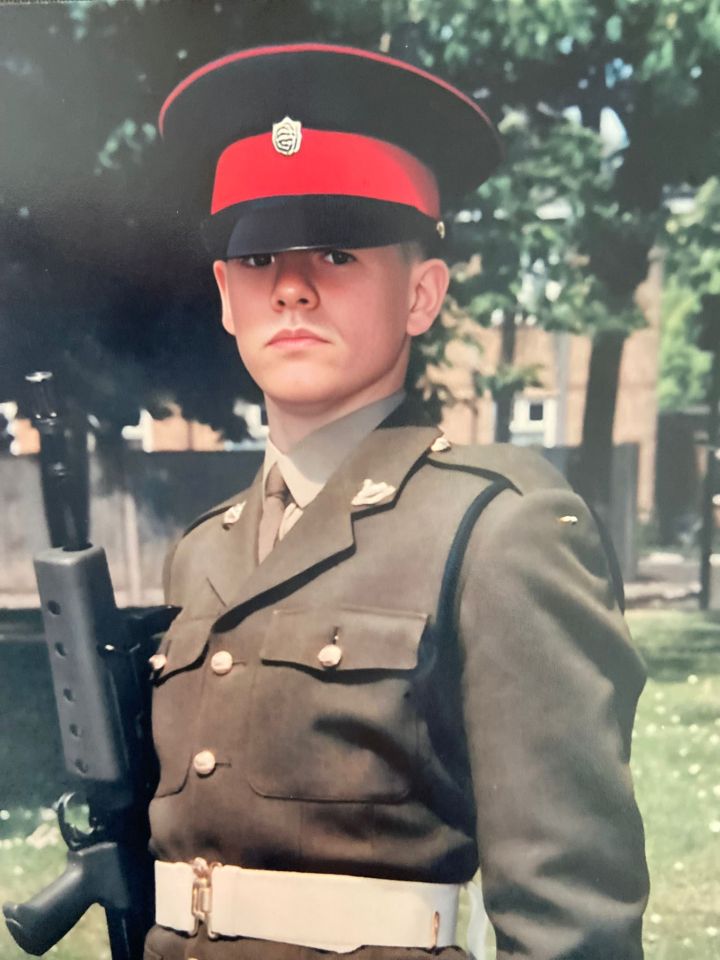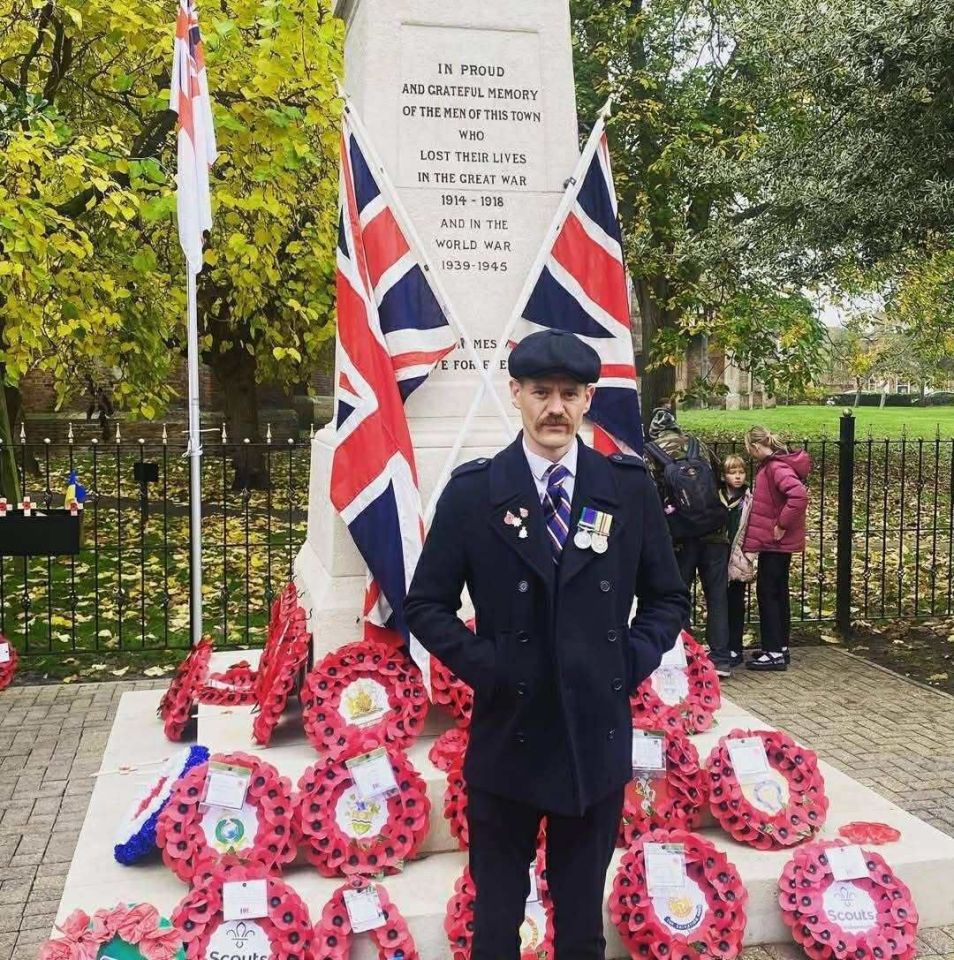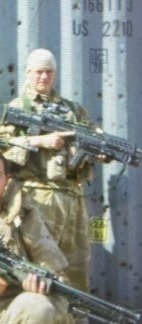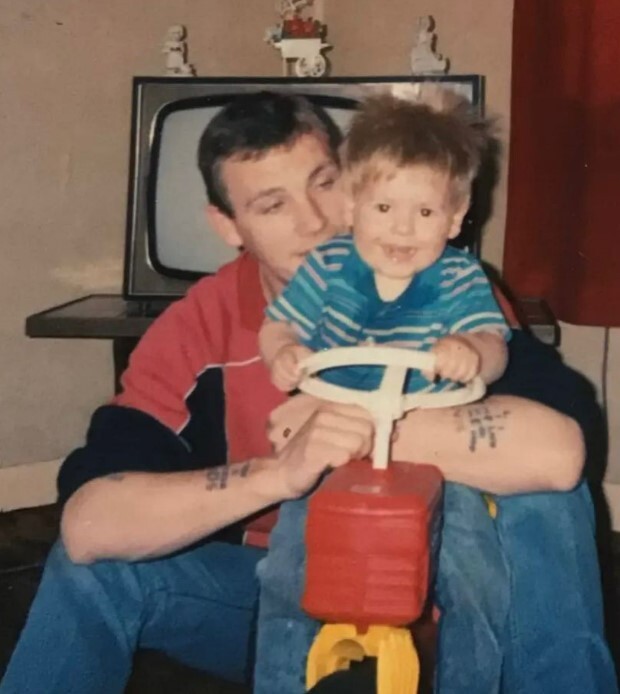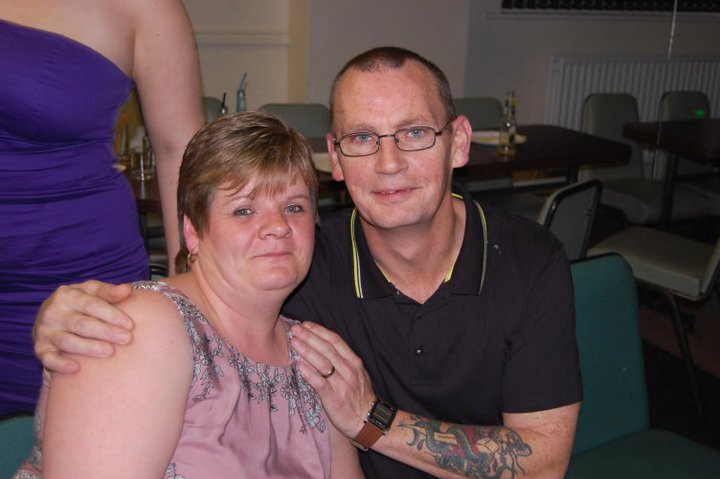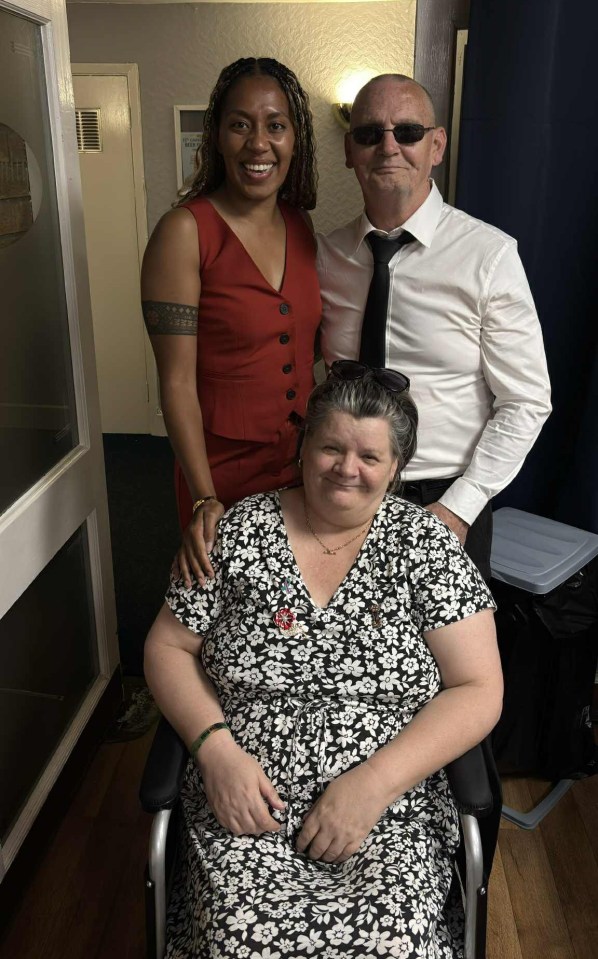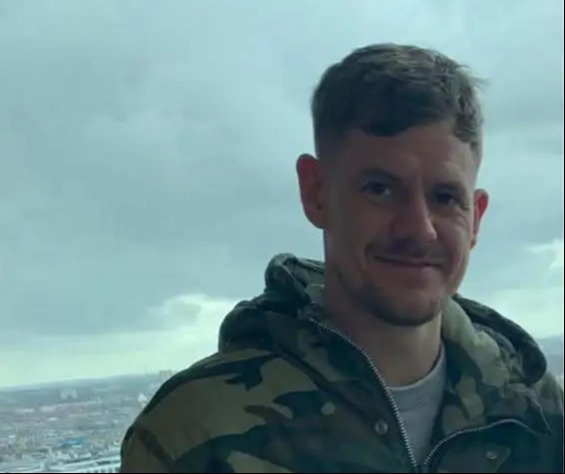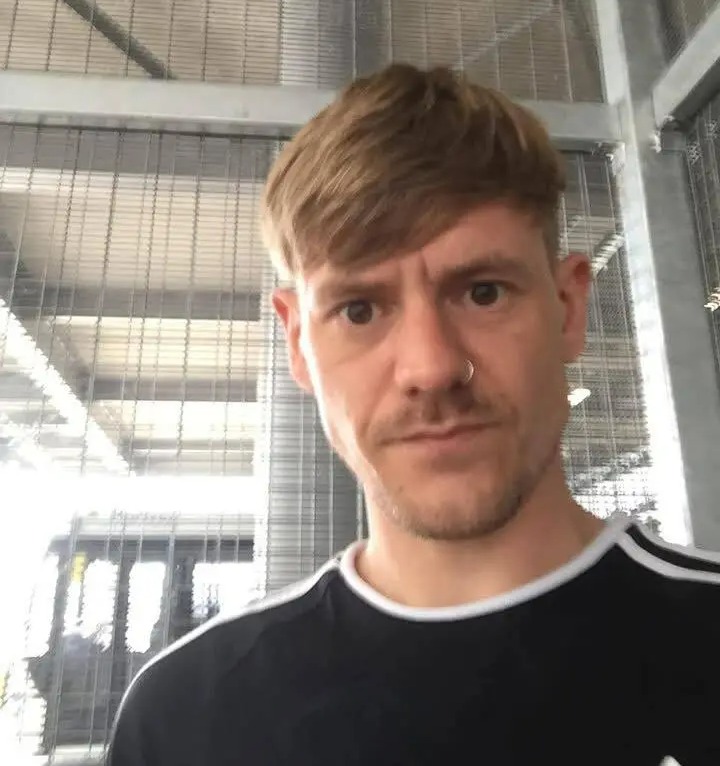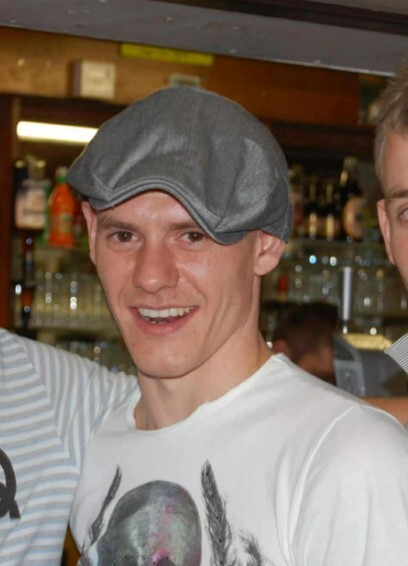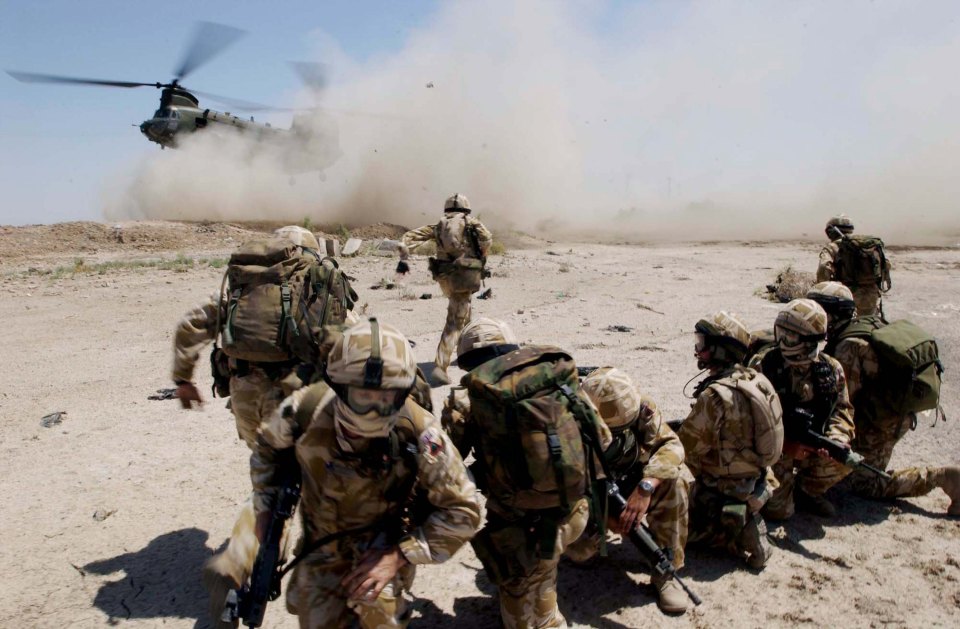MATTHEW Jones joined the Army as an eager 17-year-old in 2003, and within months was being shipped out to war-torn Iraq where he’d prove his worth as a “super soldier”.
The teenager excelled at leading teams in secret missions alongside special ops, rounding up terrorists as British troops were being pulled out – but the mental toll of what he experienced resulted in his death a few weeks ago.
On July 28, two police officers arrived at parents Ken and Ruth’s door in Saxilby, near Lincoln, to tell them their son had been found dead at his girlfriend’s home, aged just 39.
Heartbroken dad-of-four Ken, 65, is now calling for the Government to do more for Britain’s war heroes after they leave service.
“They washed their hands of Matthew once he left the forces, and he struggled ever since,” Ken told The Sun this week, just a few days after his son’s funeral.
“He’s not the only one, there are thousands of broken ex-soldiers walking around our streets, and they can’t get the support.”
War made him ‘a different person’
Matthew retired from the Army at just 20 due to the trauma he suffered, specifically after watching two close pals die in an IED explosion, but was already “a different person”, Ken said.
“We always said Matthew came back but our son didn’t,” he continued.
Ken has since seen footage showing his son training, and in the final stages before he was deployed he hardly recognised him.
“He was a complete psycho fighting machine,” he said. “They could put him in a war zone and he’d run through brick walls, into enemy fire – but what happens if he survives and has to return home?”
Describing his son’s war experiences, Ken said: “Most of the work that he did was night time throughout cities like Basra and he was working alongside special operations teams, leading a small unit of guys from his own regiment.
“They were charged with getting into buildings and taking out terrorists,” he continued.
“Whether that was, going through the door or the side walls, whatever. But Matthew was a door kicker and it’s quite scary.
“He was at the spearhead of what was happening in the inner cities of Iraq.
“He was leading strike teams, capturing terrorists – Matthew was first through the door, leading groups of small parties of special operators,” he said. “He was at the forefront of it all.”
He was a complete psycho fighting machine. They could put him in a warzone and he’d run through brick walls, into enemy fire – but what happens if he survives and has to return home
Ken Jones
He added: “It all sounds well and good, your son’s a hero and all, but what he was taking in we didn’t fully understand.
“The rule of law in the Army is you carry on.”
When two of his friends were killed in front of him, it impacted Matthew so badly that he left the forces “the first chance he got”.
Matthew’s tour of Iraq lasted just eight months, and he later served in Germany – but the “damage had already been done”, said Ken.
After he left the forces, the ex-soldier’s dependence on alcohol “kicked in straight away”, said Ken.
“Initially, we put that down to he’s out, he’s celebrating, he wants to forget what he’s seen,” he went on.
“That’s okay, that’s not a problem, but the alcohol was totally excessive, then we discovered he was starting to play about with drugs.”
Ken said his son, who is the oldest of four children, “became a split personality”.
“One minute, he was the most loving, wonderful son you could ever imagine, then suddenly he was the most nasty, evil man you could ever want to meet.”
Matthew’s family had no idea what was going on, and didn’t learn until his funeral, and speaking to his brothers in arms, the true extent of what he did during his service.
Ken watched his son struggle to hold down a job, and destroy his relationships.
“It almost destroyed us as a family several times,” he said. “He attempted suicide several times before his death.”
Ken believes his son showed “all the signs of schizophrenia”, and appeared to have developed a dissociative disorder in which he blocked out his real memories and latched onto others’, identifying with their trauma.
“He would be speaking about things that had happened to him in childhood, but the trauma he was relating to was mine because he’d been told things throughout the years,” explained Ken.
“He was coming up with my memories, not his. We were there, we know what his childhood involved. The boy was completely messed up.”
Ken and the family desperately tried to find help for Matthew with his mental health, and praised the military charities – but said the Government itself must do more.
He said: “There’s nothing while they’re in the Army and there’s absolutely nothing when they leave.”
He added: “There’s no rehabilitation, no reintroduction into society, no psychological assessment, there’s nothing. Just there you go, mate.”
Ken said the only incentive Matthew was offered to stay in the forces was the promise they would pay for him to learn to drive.
He had served with the Royal Anglian 2nd Battalion, or The Poachers, and Ken said he is “not blaming the regiment at all… it’s made up of some fantastic men”.
“This is coming from the MoD and Whitehall,” he said. “The end result is, we’ve got people like Matthew walking around the streets, they don’t know where to turn. They’re broken men, just about holding it together – but for how long?
“And how can the government stand by and ignore these veterans, who serve the country, and many are homeless – and not have them top priority?”
This is coming from the MoD and Whitehall. The end result is, we’ve got people like Matthew walking around the streets, they don’t know where to turn. They’re broken men, just about holding it together – but for how long?
Ken Jones
Matthew, who was dad to two children, had gone on to become a fully qualified electromechanical engineer, and had recently entered into a new relationship.
Ken said they’d seen the cycle before, everything seemed to be going well, then it fell apart and Matthew would move back home and start at square one.
“Problem with Matthew was, you’d think he’d get to an all time low when things weren’t working out for him,” he said. “But it was the opposite – he honestly believed he wasn’t worthy of what he was given or earned.
“The moment things were working out for him and he was on a high, he’d burn out and that was it. He went into a massive deep depression, which is something we couldn’t fully comprehend.
“We put him on to counselling, but he didn’t take.”
When Ken and Matthew’s mum Ruth were informed of his death, the dad said: “My legs went and my world just disappeared.”
It was Matthew’s platoon sergeant, just a few years older than him, who ensured his fellow soldier got a proper military send off.
But the tragedy is that same veteran is “burying friends over and over”, with the funeral for another man he’d served alongside taking place just days later.
‘On a day I want to forget, I can’t forget’
Describing Matthew’s send off, Ken said: “On a day I want to forget, I can’t forget.
“There was so much pride in that church. 300 people, we had the Union Jack, we had the standard bearer, we had a bugle player, we had a guard of honour for the coffin, all ex-servicemen, all stood there proudly with their heads bowed.
“It was amazing the respect that they showed each other.
“It’s just a shame the government doesn’t show them one percentage of that respect.”
It was also at the funeral that Ken and his family learned in more detail about what Matthew had endured during his time in Iraq.
Despite struggling in school, and remaining a private throughout his three years as a soldier, Ken said he was astounded with the horrors of Matthew’s service and how much respect he’d garnered.
“These weren’t just stories to make us feel better, they were down and dirty,” said Ken. “Some of these guys were talking about it like it was yesterday.”
“I know details about how his friends died and what happened to people who killed his friends – but that’s not my story to tell, and I might be breaching some laws if I did.”
Ken went on to say: “He was looking after people that were older than him and was guiding them.
“They rated Matthew so highly. I’m blown away by the love and respect that they had for my son, and I’m so proud but so sad that we’ve only just found out so much.”
The Sun has approached the Ministry of Defence for comment.
See more on Ken’s campaign and sign his petition here.
You’re Not Alone
EVERY 90 minutes in the UK a life is lost to suicide
It doesn’t discriminate, touching the lives of people in every corner of society – from the homeless and unemployed to builders and doctors, reality stars and footballers.
It’s the biggest killer of people under the age of 35, more deadly than cancer and car crashes.
And men are three times more likely to take their own life than women.
Yet it’s rarely spoken of, a taboo that threatens to continue its deadly rampage unless we all stop and take notice, now.
That is why The Sun launched the You’re Not Alone campaign.
The aim is that by sharing practical advice, raising awareness and breaking down the barriers people face when talking about their mental health, we can all do our bit to help save lives.
Let’s all vow to ask for help when we need it, and listen out for others… You’re Not Alone.
If you, or anyone you know, needs help dealing with mental health problems, the following organisations provide support:



